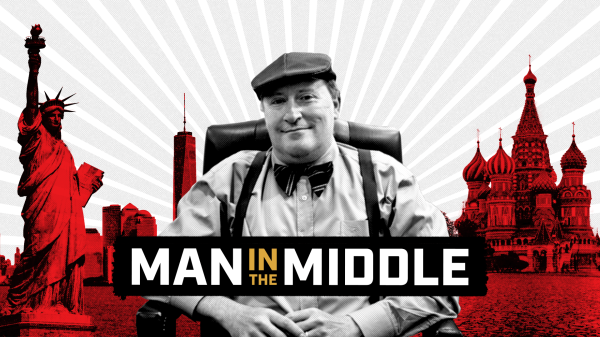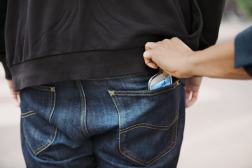Silk Road defendant’s lawyers say case has evidence tampering and more corruption

Add one more layer of questions to a criminal case already plagued with murkiness and corruption.
Over a year after two crooked federal agents were put behind bars on charges of extortion and fraud carried out during the Silk Road investigation, the defense team is now alleging in court that it has uncovered new and previously “undisclosed corruption by one or more law enforcement personnel” which resulted in evidence tampering on a database that played a critical role in the criminal trial and conviction of alleged Silk Road kingpin Ross Ulbricht.
The theory that there were other corrupt cops involved in the Silk Road investigation is not new, although only two officers have been charged so far. What’s new is that the Ulbricht defense team is now making it a central part of its case.
Forensic examination establishes that the database for the Silk Road forum was tampered with, the defense is arguing, “in order to delete certain communications and information related to a person with the username notwonderful,” defense attorney Lindsay Lewis told CyberScoop on Tuesday.
“We know that things have been deleted because we have versions, another copy that has these conversations that are no longer in the Silk Road database,” Lewis said. “We are of the impression that someone tampered with that in order to get rid of these particular conversations.”
The tampering deleted communications between the username notwonderful and the leader of Silk Road, username Dread Pirate Roberts, Lewis said.
Notwonderful, who the defense team says also controlled the username albertpacino, was paid $500 per week by the owner of Silk Road in order to leak insider police information to the Silk Road mastermind, according to evidence from the criminal trial.
The deleted communications, a portion of which were saved in separate files on Ulbricht’s computer as “le_counter_intel.txt” (meaning “law enforcement counter-intelligence”), show a law enforcement insider feeding Dread Pirate Roberts (DPR) sensitive information on the police investigation into Silk Road. In exchange, the insider is paid a handsome retainer and weekly salary for leaking the valuable information.
Founded in early 2011 and shuttered by police in late 2013, Silk Road was the grandfather of dark net black markets. It ran on the Tor anonymizing network and did million of dollars’ worth of business, attracting a curious global spotlight before FBI agents arrested Ulbricht in a San Francisco public library while he oversaw the website’s day-to-day operations.
At the center of the defense team’s theory is that although Ulbricht admittedly created Silk Road in 2011, the Dread Pirate Roberts identity was passed around among multiple individuals. With paid police insiders keeping DPR steps ahead of the investigation, DPR was able to give the site back to Ulbricht to set him up as the fall guy for a headline-grabbing arrest.
The insider info obtained from notwonderful but later deleted from copies of the forum “gave [DPR] plenty of time to plan his exit and frame Ross,” Lewis said.
With another set of murder-for-hire charges against Ulbricht still looming, his lawyers are using the new accusations of evidence tampering to demand all relevant discovery information from prosecutors relating to the previously convicted corrupt police officers; all relevant communication between the numerous law enforcement offices involved in the investigation; and all available evidence related to the altered databases.
Both the prosecution and judge said they used Ulbricht’s double life sentence to “send a clear message.” In the year following Ulbricht’s arrest, however, the dark net drug market inventory grew by 37 percent.
Because of a protective order on the case, the Ulbricht lawyers say, it’s not yet clear if and when the defense’s new court submissions will be made publicly available. They are being filed Tuesday.
The question of corrupt law enforcement agents and a shadow DPR was repeatedly muted by the judge during Ulbricht’s trial.
By the time the trial began, prosecutors knew of at least two police officers who stole money and committed several crimes during the investigation while the defense knew of one, DEA agent Carl Force, who engaged in extortion, conflict of interest, theft of government property and the theft of at least $500,000 in bitcoins during the investigation. They would later find out about Secret Service special agent Shaun Bridges, whose scheme netted him at least $800,000 in stolen bitcoins before he was caught.
Federal prosecutors initially accused Force of being albertpacino. But in later court filings, the association is notably dropped.
Even the name notwonderful is laced with meaning. The username “Mr. Wonderful” was used by a federal agent operating on Silk Road. Notwonderful and albertpacino told Ulbricht exactly that, a fact that was confirmed in court.
“Even that in and of itself we believe shows a level of internal knowledge that, given who the profile of Mr. Wonderful, conveys a certain understanding of certain inner workings of what the government was doing during the investigation,” Lewis said.
“The Mr. Wonderful operation is still in progress and revolves around bribing or threatening your team into providing access to a staff account,” notwonderful told DPR in private messages. “The benefit would be to not only get closer to you, but to be in a position of trust in the community which could potentially net high volume vendors. A few of your staff have absolutely been in touch with Mr.W and most likely have carried on correspondence with them off-site. Mr.W is being actively maintained by DEA.”
Despite a tangled web of corruption that has Hollywood hearts aflutter, the defense was expressly disallowed to bring up any talk of corrupt agents during the trial. Lead defense attorney Joshua Dratel tried to convince jurors that the internet-based evidence was unreliable but, because the judge forbade it, he was unable to explain that multiple agents with access to the evidence had engaged in a grab bag of felonies for their own enrichment.
The new demand for discovery is an effort to “round out the investigation we weren’t allowed to conduct.”
“We don’t believe this to be Force or Bridges,” Lewis explained. “We think this is an additional individual. Just based on the practices and the amounts of money this person is asking for, how they go about things, we think it’s likely to be someone else.”
The Ulbricht family has argued for years that the government unfairly “suppressed evidence” during the trial.
‘We’ve always said that what we saw was we didn’t know how far-reaching it all went,” Lewis said. “We didn’t know what the government knew and didn’t know, we don’t know if the government knows or doesn’t know about this, but we never took at face value what we had. By the time we went to trial we had Force but we didn’t even have Bridges. We didn’t even know about Bridges until after the trial was over, so it’s always been in our mind that there may be other evidence, other corruption, other corrupt agents out there. We think we have concrete evidence of that here.”




